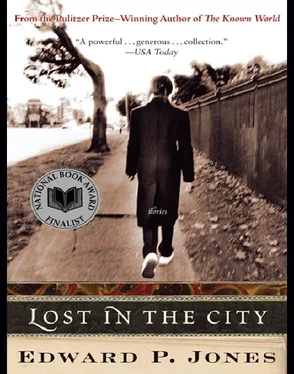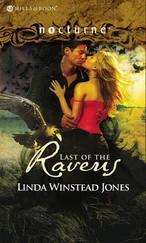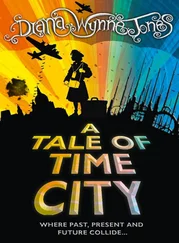About a half hour or so before closing that Friday, Kentucky came by. She had bought a new stereo and all week I had been borrowing records from friends because we planned a little party, just the two of us, to break in the stereo. Penny left the locking up to me and got ready to go.
“Who’s the man tonight?” Kentucky asked Penny. I think she must have had more boyfriends than Carter had liver pills. I had just finished covering the meat for the night, something Penny and I called putting the chickens to bed.
“Ask me no questions…,” Penny said and winked. She whispered in Kentucky’s ear, and the two laughed. Then Kentucky, looking dead at me, whispered to Penny, and they laughed even louder. Finally, Penny was ready to leave.
If the sign said we closed at nine, that was precisely the time Penny wanted the store closed and I wasn’t allowed to close any sooner. I could close later for a late-arriving customer, but not any sooner. And as it happened, someone did come in at the last minute and I had to pull out some pork chops. Penny said good night and left. I locked the door after the pork chop customer. I may or may not have heard the sound of a car slamming on brakes, but I certainly heard little Carl Baggot banging at the door.
“You little squirt,” I said to him. “If you break that window, I’m gonna make your daddy pay for it.” I’d pulled down the door shade to an inch or so of where the glass ended, and I could see the kid’s eyes beaming through that inch of space. “Can’t you read, you little punk. We closed. We closed! ” and I walked away. Kentucky was standing near the door and the more the kid shouted, the closer she got to the door.
“He’s hysterical, honey,” she said, unlocking the door. She walked out, and I followed.
Penny’s lavender Cadillac was stopped in the middle of 5th Street, one or two doors past O Street. From everywhere people were running to whatever had happened. Penny was standing in front of the car. I pushed my way through the crowd, and as I got closer I saw that her fists were up, shaking, and she was crying.
“She hit my sista,” Tommy Turner was saying, pounding away at Penny’s thigh. “This bitch hit my sista! This bitch hit my sista!” Some stranger picked the boy up. “All right, son,” the man said, “thas anough of that.”
Patricia Turner lay in the street, a small pool of blood forming around her head. She had apparently been chasing a rolling Hula Hoop, and she and the hoop, now twisted, had fallen in such a way that one of her arms was embracing the toy. Most of what light there was came from the street lamps, but there were also the Cadillac’s headlights, shining out on the crowd on the other side of the girl. “You should watch where you goin with that big ole car,” Mrs. Baxter said to Penny. “Oh, you know it was a accident,” a man said. “I don’t know no such thing,” Mrs. Baxter said.
The girl’s eyes were open and she was looking at me, at the people around her, at everything in the world, I suppose. The man still had hold of Tommy, but the boy was wiggling violently and still cursing Penny. Penny, crying, bent down to Patricia and I think I heard her tell the child that it would be all right. I could tell that it wouldn’t be. The girl’s other arm was stretched out and she had a few rubber bands around the wrist. There was something about the rubber bands on that little wrist and they, more than the blood perhaps, told me, in the end, that none of it would be all right.
Soon Joy, the girl’s mother, was there. “You murderin fuckin monster!” she kept yelling at Penny, and someone held her until she said that she wanted to go to her baby. “Look what that murderin monster did to my baby!”
The police arrived, but they did not know what else to do except handcuff Penny and threaten to arrest the man who held Tommy if he didn’t control the boy. Then the ambulance arrived and in little or no time they took the girl and her mother away, the flashing light on the roof shining on all the houses as it moved down 5th Street. A neighbor woman took Tommy from the stranger and took the boy inside. Wordlessly, the crowd parted to let them by, as it had parted to let the ambulance through. The police put Penny in the back of the scout car and I followed, with Kentucky holding tight to my arm. Through the rolled down window, she said to me, “Bail me out, if they’ll let me go.” But most of what she said was just a bunch of mumbles, because she hadn’t managed to stop crying. I reached in the window and touched her cheek.
I opened the store as usual the next day, Saturday. The child died during the night. No one, except people from out of the neighborhood, spoke when they came in the store; they merely pointed or got the items themselves and set them on the counter. I sold no meat that day. And all that day, I kept second-guessing myself about even the simplest of things and kept waiting for Penny to come and tell me what to do. Just before I closed, one girl, Snowball Patterson, told me that Mrs. Baxter was going about saying that Penny had deliberately killed Patricia.
Penny called me at Kentucky’s on Sunday morning to tell me not to open the store for two weeks. “We have to consider Pat’s family,” she said. I had seen her late that Friday night at No. 2 police precinct, but she had said little. I would not see her again for a month. I had parked the Cadillac just in front of the store, and sometime over the next two weeks, the car disappeared, and I never found out what happened to it, whether Penny came to get it late one night or whether it was stolen. “Pay it no mind,” Penny told me later.
She called me again Monday night and told me she would mail me a check for two thousand dollars, which I was to cash and take the money to Patricia’s family for her funeral. The police were satisfied that it had been an accident, but on the phone Penny always talked like old lady Baxter, as if she had done it on purpose. “Her mother,” Penny said, “wouldn’t let me come by to apologize. Doesn’t want me to call anymore.” All that month, and for some months after, that was the heart of the phone conversation, that the mother wouldn’t allow her to come to see her and the family.
Joy came in one day about three months after Pat died. Tommy came with her, and all the time they were in the store, the boy held his mother’s hand.
“You tell her to stop callin me,” Joy said to me. “You tell her I don’t want her in my life. You tell her to leave me alone, or I’ll put the law on her. And you”—she pointed at me—“my man say for you not to bring me no more food.” Which is what Penny had been instructing me to do. The boy never said a word the whole time, just stood there close to his mother, with his thumb in his mouth and blinking very, very slowly as if he were about to fall asleep on his feet.
About once a week for the next few years, Penny would call me at Kentucky’s and arrange a place and time to meet me. We always met late at night, on some fairly deserted street, like secret lovers. And we usually met in some neighborhood in far, far Northeast or across the river in Anacostia, parts of the world I wasn’t familiar with. I would drive up, park, and go to her car not far away. She wanted to know less about how I was operating the store than what was going on with the people in the neighborhood. She had moved from her apartment in Southwest, and because I had no way of getting in touch with her, I always came with beaucoup questions about this and that to be done in the store. She dispensed with all the questions as quickly as possible, and not always to my satisfaction. Then she wanted to know about this one and that one, about so-and-so and whoever. Because it was late at night, I was always tired and not always very talkative. But when I began to see how important our meetings were, I found myself learning to set aside some reserve during the day for that night’s meeting, and over time, the business of the store became less important in our talks than the business of the people in the neighborhood.
Читать дальше












